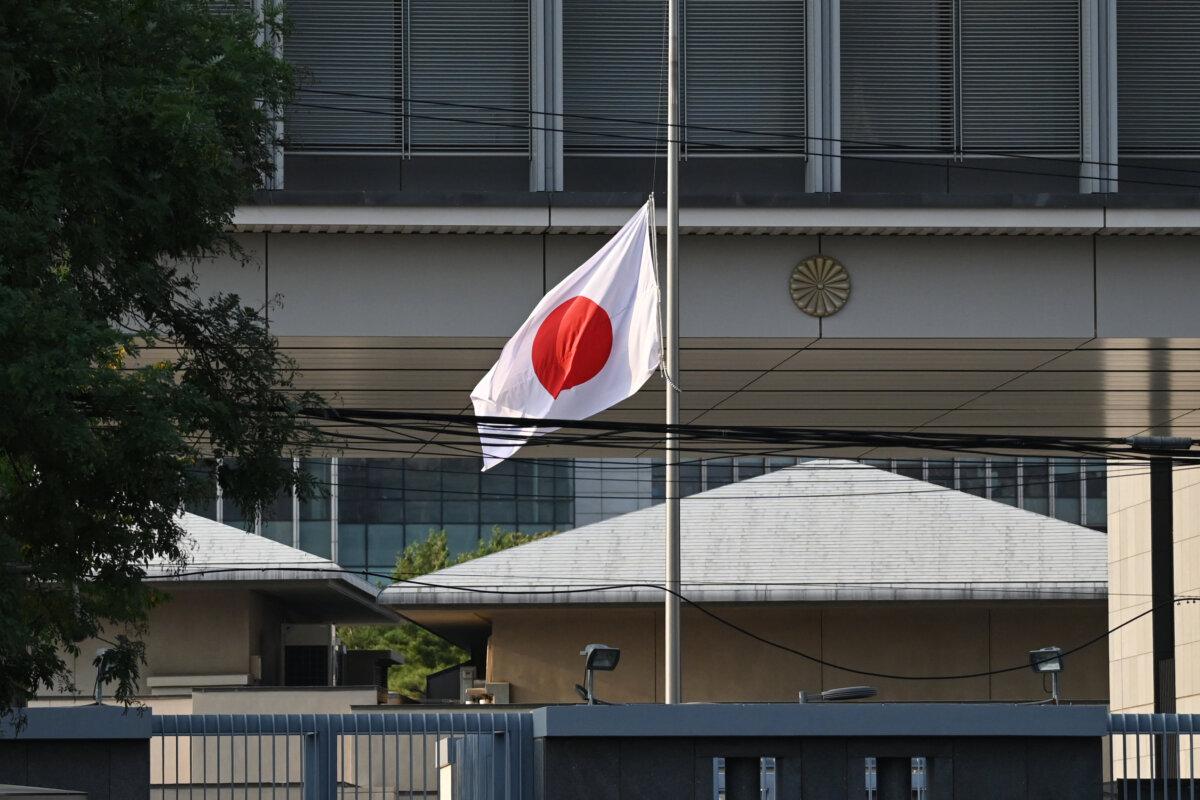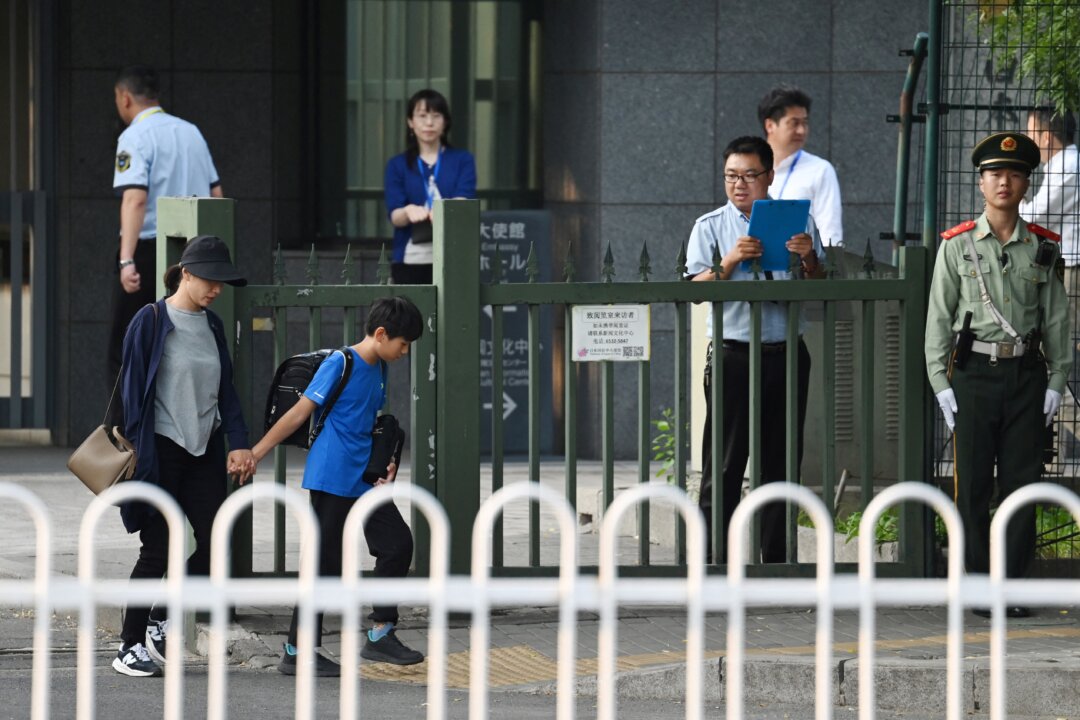The stabbing, which occurred on a sensitive anniversary, marked the second attack against Japanese citizens in China in less than three months.
A Japanese pupil has died after being stabbed near a Japanese school in southern China, authorities in both Japan and China confirmed, marking the second attack against Japanese citizens in China in less than three months.
The boy was stabbed by a man around 220 yards from the school gate on the morning of Sept. 18, according to the Chinese foreign ministry. The attacker was apprehended at the scene, and the pupil was immediately taken to the hospital. However, he died in the early morning of the next day, according to Tokyo officials.
“I cannot imagine the pain the family is going through,” Japanese Foreign Minister Yoko Kamikawa told reporters in Tokyo on Sept. 19.
“This should never happen in any country. Particularly, I sincerely regret that this despicable act was committed against a child on their way to school.”
Kamikawa said they’ve asked China to provide an explanation “as soon as possible.”
The stabbing occurred on the anniversary of the 918 incident, referring to Sept. 18, 1931, when a Japanese-owned railway track exploded in the northern Chinese city of Shenyang, which was used as a pretext by Japanese troops to initiate the invasion of China, lasting 14 years until September 1945, near the end of World War II.
Speaking at a daily briefing in Beijing, China’s foreign ministry spokesperson Lin Jian said Beijing is “in communication” with Tokyo about the stabbing of the boy.
“We believe individual cases will not affect the exchanges and cooperation between China and Japan,” Lin told reporters on Sept. 19.
He said the attack was an individual case and that the Chinese side regrets and feels “saddened about the incident.”
According to Lin, the victim is a Japanese national with a Japanese father and a Chinese mother.
In Shenzhen, where the stabbing occurred, local police identified the assailant as a 44-year-old man surnamed Zhong.
An eyewitness told The Epoch Times the man who stabbed the Japanese pupil looked like an “ordinary person.”
The witness, who is a friend of the victim’s mother, said she was about 32 yards away from the victim when the attack occurred, walking her own child to school at the time.
“The assailant fled toward my direction after stabbing the boy,” said the woman, who preferred not to disclose her name for fear of retribution. The attacker then stood next to her, “seemingly unconcerned” about the victim, she said.In recent decades, as the Chinese Communist Party (CCP) ordered the strengthening of what it calls “patriotic education,” authorities across the country held various events on Sept. 18 to highlight Japan’s historical wartime activities, reminding people not to forget the invasion.
A Chinese mother, who currently lives in Japan and chose not to reveal her name for fear of retribution, told The Epoch Times that in mainland China, people are exposed to “anti-Japanese education” from a young age, starting as early as kindergarten.
She recalled a conversation with her first grade son, who warned her against traveling to Japan because his school teacher had told the class that “the Japanese are bad people.”

The motive for the attack remains unclear, but outside observers linked the incident to the heightened anti-Japanese sentiment in China, which had been fueled by years of anti-Japanese propaganda in education.
“A Japanese boy was stabbed by an assailant in Shenzhen, and there is no doubt that this is related to the ‘xenophobic sentiment’ deliberately created and fueled by the Chinese Communist Party,” Wang Dan, a Chinese dissident, wrote on social media platform X.
“However, throughout history, nationalist hatred has always been one of the root causes of disaster, and those who suffer the consequences include not only innocent civilians but also the very instigators of such hatred. The outbreak and outcome of World War I are examples of this.”
The latest incident occurred less than three months after a Japanese woman and her 3-year-old child were injured after being attacked by a Chinese man with a knife in the southeastern city of Suzhou.
Yaita Akio, a Japanese journalist now living in Taiwan, said the stabbing coincides with China‘s economy facing serious headwinds.
“The frustration and discontentment brewing among the Chinese population due to economic woes have been intentionally redirected toward foreigners. After years of anti-Japanese indoctrination and propaganda, the Japanese have become the primary target” of this anger, he said in a Facebook post.
Japanese Ambassador to China Kanasugi Kenji reiterated his government’s demand to “promptly share” the information of the stabbing during a call with Chinese Vice Minister of Foreign Affairs Sun Weidong on the afternoon of Sept. 19.
Kenji called for Beijing to strengthen security at the Japanese school and “called for measures to prevent such a tragic incident from ever happening again,” according to the embassy.
Jiang Zuoyi contributed to this report.

